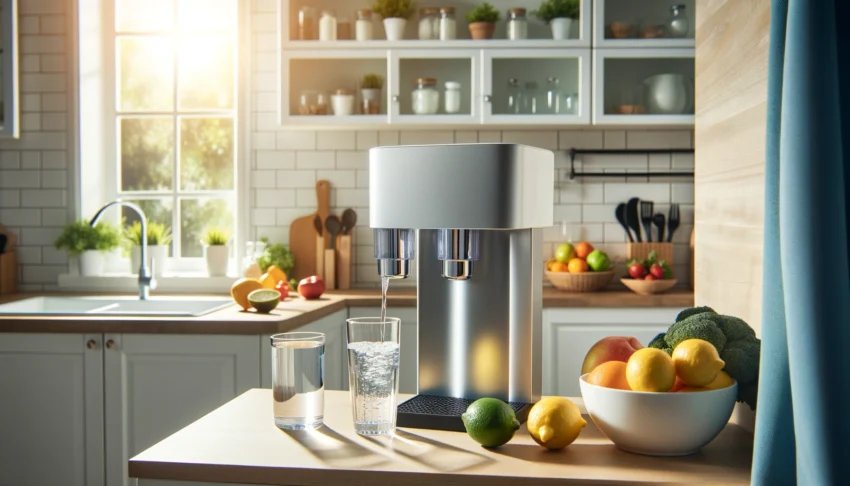Water is essential for life, yet the quality of the water we consume can vary dramatically depending on where we live and how it’s treated. Whether you’re drinking from a municipal source or a private well, contaminants can make their way into your water supply. This is where water filters come in, offering a convenient and effective solution to ensure the water you drink is clean and safe. In this guide, we’ll explore the importance of water filtering, the different types of filters available, and why investing in a high-quality water filter is a smart decision for your health and well-being.
The Importance of Water Quality
Understanding water quality is crucial because the water you consume can have a significant impact on your health. Even treated water from municipal sources can contain contaminants such as:
- Heavy metals: Lead, mercury, and arsenic can cause severe health issues, including neurological damage and developmental delays in children.
- Microorganisms: Bacteria, viruses, and parasites can lead to illnesses ranging from mild gastrointestinal discomfort to severe diseases.
- Chemicals: Pesticides, herbicides, and industrial pollutants can have long-term health effects, including cancer and endocrine disruption.
- Chlorine and Chloramines: Commonly used in water treatment, these chemicals can react with organic matter to form harmful byproducts.
Given these potential risks, ensuring that your drinking water is free from harmful substances is essential.
Types of Water Filters
There are various types of water filters available, each designed to address specific contaminants and fit different needs. Understanding the options can help you choose the right one for your home.
Activated Carbon Filters
Activated carbon filters are among the most common and effective filters for removing chlorine, sediment, and volatile organic compounds (VOCs). They work by adsorbing contaminants onto the surface of the carbon particles, effectively removing them from the water.
Reverse Osmosis Systems
Reverse osmosis (RO) systems use a semi-permeable membrane to remove a wide range of contaminants, including heavy metals, fluoride, and nitrates. These systems are highly effective and provide high-quality drinking water, although they can also remove beneficial minerals.
UV Water Purifiers
UV water purifiers use ultraviolet light to kill bacteria, viruses, and other pathogens. While they are excellent for disinfecting water, they do not remove chemical contaminants or sediment. UV purifiers are often used in conjunction with other types of filters.
Ceramic Filters
Ceramic filters have tiny pores that block bacteria, protozoa, and sediment. They are durable and can be cleaned and reused multiple times. These filters are ideal for removing biological contaminants but may need to be combined with carbon filters to remove chemicals.
Water Filter Pitchers
Water filter pitchers are convenient and easy to use, providing filtered water by pouring it through a filter cartridge. They are suitable for removing chlorine, lead, and some VOCs but may not be as comprehensive as other systems.
Why Invest in a Water Filter?
Health and Safety
The primary reason to invest in a water filter is to ensure the health and safety of your drinking water. Contaminants such as bacteria, viruses, heavy metals, and chemicals can pose significant health risks. A water filter provides a reliable barrier against these contaminants, ensuring that every drop you drink is clean and safe.
Economic and Environmental Benefits
Investing in a water filter is not only good for your health but also for your wallet and the environment. Bottled water is expensive and contributes to plastic pollution. By filtering your water at home, you reduce your reliance on bottled water, save money, and minimize your environmental footprint.
Convenience and Quality of Life
Having a water filter at home provides convenience and peace of mind. You’ll have access to clean, great-tasting water whenever you need it, without the hassle of purchasing and transporting bottled water. Whether it’s for drinking, cooking, or making coffee, filtered water can enhance the quality of your daily life.
Long-Term Savings
While there is an initial investment in purchasing a water filter, the long-term savings are substantial. Compared to the ongoing cost of bottled water, a water filter provides a continuous supply of clean water at a fraction of the cost.
Choosing the Right Water Filter
When selecting a water filter, consider your specific needs and the contaminants you want to remove. Here are a few tips to help you choose the right filter:
- Identify Contaminants: Determine what contaminants are present in your water by checking your water quality report or using a home testing kit.
- Filter Type: Choose a filter type that effectively removes the identified contaminants. For comprehensive protection, consider systems that combine multiple filtration methods.
- Capacity and Maintenance: Consider the filter’s capacity and the frequency of maintenance required. Larger households may need filters with higher capacity and flow rates.
- Certification: Look for filters that are certified by reputable organizations such as NSF International, ensuring they meet specific performance standards.
Conclusion
Water filtering is an essential practice for anyone concerned about their health and well-being. While there are various types of filters available, choosing the right one depends on your specific needs and the contaminants in your water. Investing in a high-quality water filter can provide numerous benefits, including improved health, cost savings, and environmental sustainability.
You can find a wide selection of options on Amazon. Click here to browse through various brands and products to find the one that suits your needs. Or take it to the next level with ClearlyFiltered.

